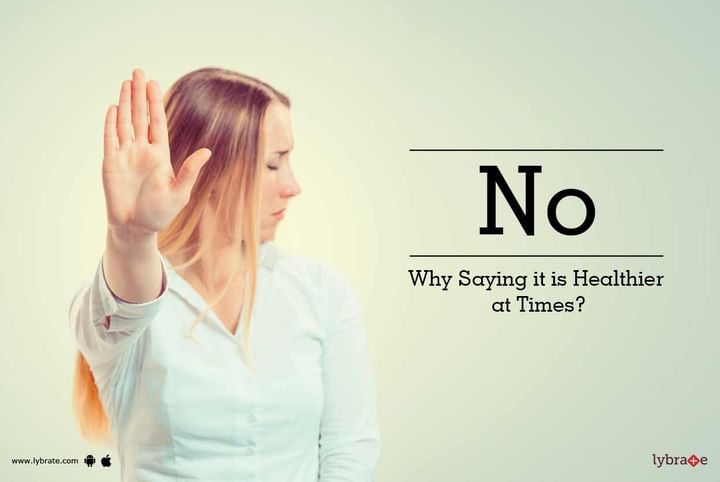No - Why Saying it is Healthier at Times?
'No' appears to be a very simple and straightforward word. However, it can be shockingly hard to say. People most of the time agree to things that they really do not want. Since they would preferably feel overburdened and low rather than disappoint somebody, saying "no" feels easier to maintain connections with people.
The repercussions of this absence of disagreement is critical. By overcommitting ourselves, we are actually consuming the majority of our positive energy and using it somewhere where you might not want to. This takes away from our common character and quality. It leaves us tired and we meet each day like it is simply one more battle. We also give up our own requirements for space, stillness, relaxation and imagination and are bound to our state.
To stay away from this, we must know about our own necessities and priorities for both mental and physical well-being and joy. For this, one may have to know when saying "yes" will fulfill your requirement for rest, relaxation or self-awareness. When one does this, their unfounded dread of not being socially acceptable from saying "no" will go away gradually.
Here are three reasons why saying "no" can prove to be beneficial:
- You will have additional time: The extra time made by saying "no" will, at any rate, prevent that forced clock from ticking. It will make you feel like you are in control. This can truly lighten up your mood and lift your anxiety and bolster your health. Rather than saying yes to going out for lunch or a party that you feel obligated to go to, but might not want to, simply try to say no. You will automatically feel happier when you are sitting at home, relaxing rather than forcefully socialising.
- You will be less remorseful: At first, you may be reluctant to state "no" because of a paranoid fear of passing up a major opportunity or the fear of missing out. As a general rule, nonetheless, in case that you need to state "no," odds are you have much better explanations for you not being there. If you do go for it, you might regret it afterwards thinking that you could have done something better with your time rather than having completely wasted it.
- Your associates will respect you for it: No one wants that they should be taken for granted. However, in case that you continue saying "yes" to each demand or opportunity, that is precisely how individuals will come to see you. The more you say "yes," the more individuals will generally expect things of you. This could prompt to a drop in your status and position and loss of control over others.



+1.svg)
